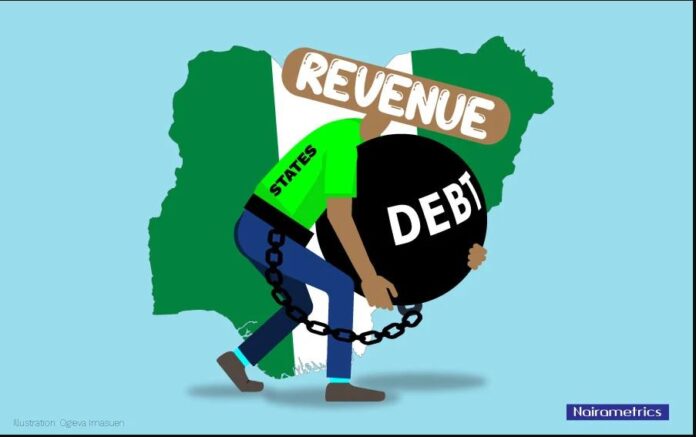Nigeria and 11 other African countries to draw from RST
By Jeph Ajobaju, Chief Copy Editor
Nigeria and other 11 members of the African Consultative Group (ACG) – among them Libya, Ghana, and Egypt – have been penciled for $40 billion loan from the Resilience and Sustainability Trust (RST) of the International Monetary Fund (IMF).
The RST will become operational later this year.
IMF Managing Director Kristalina Georgieva and Moroccan Economy and Finance Minister Nadia Fettah made the announcement at the end of the World Bank/IMF Spring Meetings in Washington.
Debt Management Office (DMO) Director General Patience Oniha confirmed on 17 March in Abuja that Nigeria’s debt rose to N39.55 trillion in December 2021.
She spoke on the same day Nigeria raised $1.25 billion additional loan through Eurobonds, part of N150 billion bond issuance planned for 2022 and beyond.
The Eurobonds, the coming IMF loan, and any other loan Nigeria obtains from 2022 onwards will add to its N39.55 trillion cumulative debt as of 2021. The country already spends 90 per cent of revenue on servicing loans.
RST funded by SDRs
Georgieva said the RST will be funded by Special Drawing Rights (SDRs) channelled from donor countries.
It will complement the lending toolkit of the IMF by providing longer-term affordable financing to address longer-term challenges, including climate change and pandemic preparedness.
“The African Consultative Group (ACG) welcomed initial pledges of about $40 billion toward financing the RST, and urged other contributors to make additional pledges to ensure the RST is well-positioned to support African countries to address their long-term challenges and build resilience,” Fettah, Chair of the African Caucus of ACG, explained in a statement.
ACG comprises the Fund Governors of a subset of 12 African countries belonging to the African Caucus (African finance ministers and central bank governors) and Fund management.
“The group also underscored the need to address rising debt vulnerabilities of developing countries, particularly in Africa and find effective ways to alleviate the weight of the debt service,” Fettah added.
“It also stressed the need to continue working together to strengthen the debt resolution architecture, including by improving the Common Framework for debt treatments and technical assistance within the Multipronged Approach (MPA) to address the remaining capacity requirements.”
_______________________________________________________________
Related articles:
DMO blames NASS for helping raise Nigeria’s debt to N39.55tr
Abuja blames high debt on firms dodging N7tr tax payment
Under Buhari, even lawmakers are stealing billions, says ICPC
Buhari ignores yearly $4b oil theft, insists on taking loans
__________________________________________________________________
Africa’s recovery prospects
“Our discussions on Africa’s challenges and prospects for recovery have been very fruitful. Today the green shoots of the recovery that started in 2021 are threatened by the war in Ukraine at a time when the war on COVID-19 is still not over,” Georgieva said, according to reporting by The Nation.
“Although the continent’s fuel and commodity exporters will experience a windfall gain, the positive fiscal impact could be largely offset by additional energy and food subsidies.
“In contrast, high food and energy prices are straining commodity importers’ external and fiscal balances. Capital flows are also likely to be disrupted.
She said everyone agrees that the top priority is to protect the most vulnerable households from the impact of high food and energy prices, but noted that the external shock is hitting Africa at a time when most countries have limited fiscal space, with high debt vulnerabilities and increased risks.
“In this challenging context, targeted, temporary, and transparent support to vulnerable households using and further developing social safety nets would be the most appropriate solution.
“For this effort to succeed, governments in the region, the international community, and the private sector should make concerted efforts to mobilise revenue and additional financing to support the recovery and implement needed reforms to promote inclusive and sustainable growth, achieve diversification, tackle the climate crisis, and transition to a green economy.
“The IMF has been playing its part and reformed its concessional lending toolkit for low-income countries to provide greater flexibility to the access levels.
“It provided emergency financing to countries with urgent balance of payments needs, debt service relief under the Catastrophe Containment and Relief Trust (CCRT) to the most vulnerable countries and enacted an historical Special Drawing Rights (SDR) allocation.”
About SDR
SDR allocation boosts liquidity and reserves around the world. About $34 billion is allocated to African countries, 6 per cent of their Gross Domestic Product (GDP).












